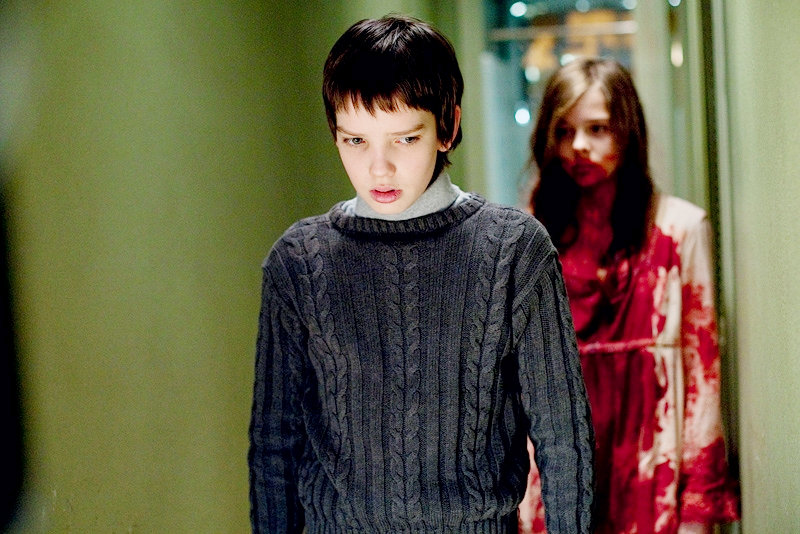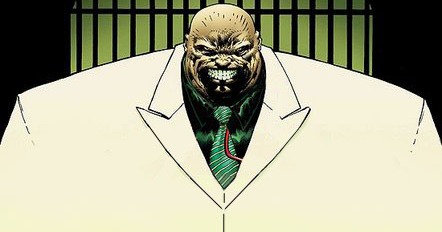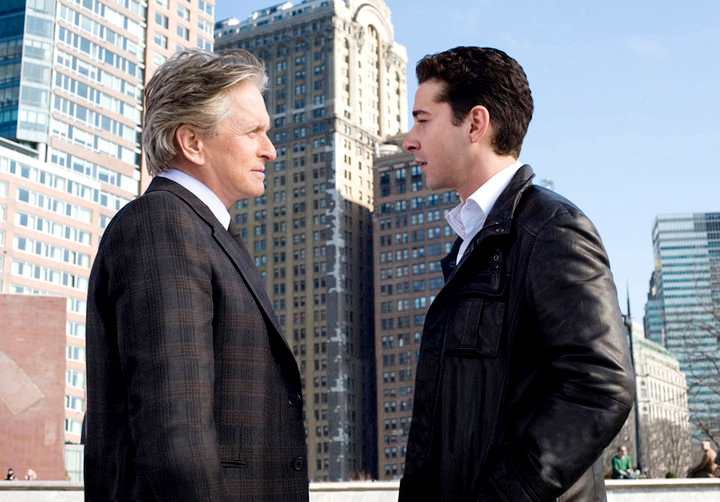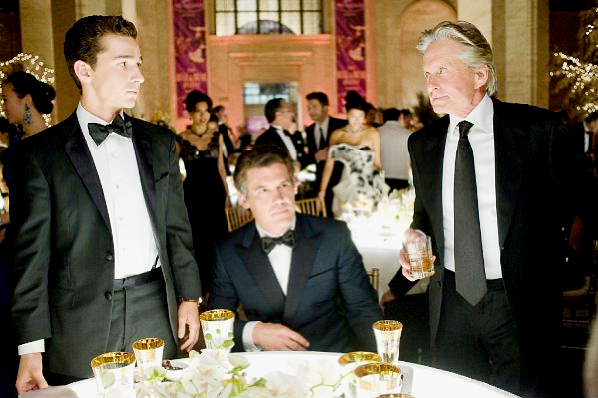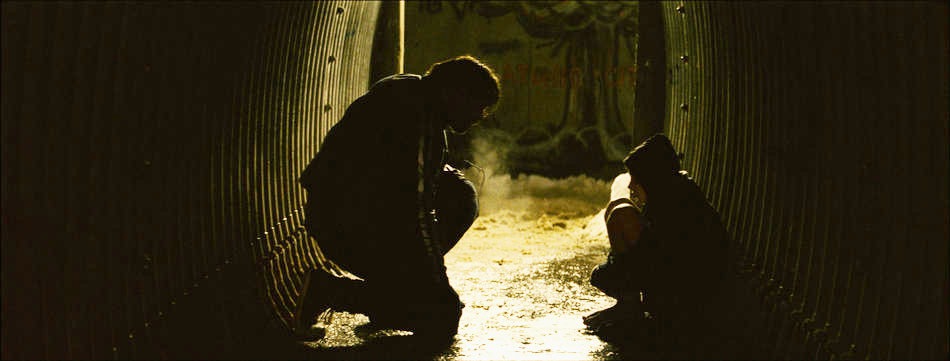
“
If you’re looking for a quality film before the coming holiday deluge (or, if you’re like me, and can pretty much tell from afar that [the fourth] Twilight likely won’t be your bag), look no further than [Matt Reeves’] taut, eerie vampire flick [Let Me In]…A[n American remake of a] Swedish import that combines elements of the age-old vampire mythos with My Girl
, My Bodyguard
, and Morrissey (hence the title), [Let Me in]
moves and feels like a particularly well-crafted Stephen King short story (or perhaps a bleaker version of one of Guillermo del Toro’s Spanish Civil War fairy tales), and definitely makes for a compelling nightmare before Christmas if you’re in the mood for it.”
Particularly given how far behind I am on reviews these days, I am tempted to keep playing Mad Libs with my December 2008 take on Tomas Alfredson’s Let The Right One In — which ultimately ended up at #38 on the decade list — all the way down the pike for this one. And the shoe would fit: While watching Matt Reeves’ American adaptation of this story, I was almost irritated by how similar Let Me In turned out to be to its Swedish source material. At times, it feels like the exact same movie, to the point where, months or years down the line, one might forget which scene was in which flick.
But, upon further reflection, isn’t that exactly what you want from a remake? (I mean, decent jobs like The Ring aside, it could be and usually is worse: Even as good a director as Christopher Nolan didn’t do much with his Americanized version of Insomnia, and just think of how botched George Sluizer’s US version of The Vanishing turned out to be.) So, if you’ve never seen the original Let The Right One In, and/or if you take the extreme similarities here to the original to be a feature rather than a bug, Let Me In actually turned out rather well. It is not an embarrassment by any means.
Let me go ahead and get the “haters gonna hate” portion of the review out of the way first. The ads and end-credits note that this film was “written for the screen and directed” by “Matt Reeves, the director of Cloverfield,” (Why they’d keep bringing up that awful flick as a selling point is anyone’s guess.) Well, maybe if by “written for the screen,” you mean “transcribed the subtitles from the original.” Otherwise, that’s a pretty blatant resume-padder. Just moving the story from a socialist-style housing complex in Sweden to wintry, northern New Mexico in the 80’s does not on its own make this a deeply original enterprise.
Ok, there are a few small differences, I guess. For no particularly compelling reason, Reeves starts this version in the middle of the story, with the grim fate of “Hakan” (Richard Jenkins — The character isn’t named in this version), the long-suffering companion to and handler of the strange new girl in town, Abby (a.k.a. Eli a.k.a. Hitgirl, Chloe Moretz.) Reeves also leaves out some memorable moments from the original film (the cat-attack, Abby’s scar) and, presumably because we Yanks are a touch simple and all, spells out exactly what the eventual ending means for our young, bulliied protagonist, Oskar/Owen (Kodi Smit-McPhee) (Owen stumbles on some old pics at one point that close the implied circle of the story.)
Otherwise, this is basically exactly the same movie as the one that was in theaters less than two years ago, albeit now without subtitles. Reeves’ most promising new flourish is early on, when the sound drops out of Reagan’s Evil Empire speech, playing on a hospital television, at an ominous moment. (“And if America ever ceases to be good…“) And between that and the Los Alamos setting (i.e. home to the Manhattan Project), I initially thought Reeves might be trying to inject an ambitious new flavor into the story here — that Owen’s eventual love for Abby, despite her committing clearly evil deeds, is not necessarily as strange and alien to us as we would want it to be. But, no, this is really just Let the Right One In all over again, now with a goofy joke about Now and Laters.
And, y’know, in the end, perhaps that is a good thing. Sure, Reeves does not build on the original film, really. But he doesn’t sell out to the Twilight crowd either. In fact, he does an impressive job of capturing the original’s essence and distilling it for an American audience. The movie looks right and feels right. It too has a strong sense of place, and it benefits from two child actors who succeed in selling the coming-of-ageless relationship at its core. Moretz is a name at this point, and so not as innately creepy as the unknown Lina Leandersson in the original. But she’s still self-possessed enough to convey Abby’s otherworldliness. And, Smit-McPhee plays the damaged, lonely Owen as well as Kare Hedebrant in the first one. (Although, between this and The Road, I hope for his sake that Smit-McPhee isn’t as needy and whiny in real life.)
So, the upshot is this: If you caught Let the Right One In recently and are looking for some sort of value-added to sit through the remake, I would skip this one or wait for Netflix. But, if you think Swedish horror movies with subtitles are for film snobs, or happen to live in a place where the original never got any run, well, this American doppelganger version isn’t a bad adaptation by any means. It may not break any new ground, but at least this Let Me In is haunted by the same wintry sadness as its source.
